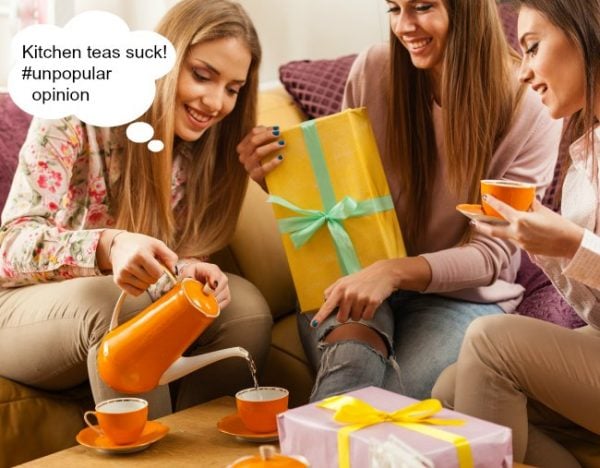
Kitchen teas… like a bridal shower only more entrenched in misogyny and gender roles, are a weird thing to the uninitiated.
They’re most commonly observed as a pre-wedding tradition in which the bride’s nearest and dearest gather in the kitchen of said bride, or that of a coerced bridesmaid’s. Guests bring a plate of baked goods, cherished recipes, or kitchen-related gift to send the wife-to-be on her journey of domestic bliss.
All ye old fun in a Jane Austen remake, but in a world where most couples move out pre-wedding, measuring cups, wooden spoons, and towels are easily accessible via your local Kmart, and women can vote, would I be going too far in calling this ritual… I don’t know… a little problematic?
LISTEN: Bridesmaids gone wrong – The woman excluded from a bridal party because of her weight. Post continues after audio.
A deep dive into the history of the kitchen tea…
Thought to have originated in the 1890s, the humble kitchen tea was believed to have taken the place of the very unfeminist concept of the dowry, AKA the thing parents of the bride gave to the husband – money, jewellery, gifts etc to guarantee their daughter’s marriage, safety, and protection. In the case of a divorce this would have to be returned.
But hey, we all agreed that weddings weren’t meant to be transactional and that women aren’t commodities, so the world moved on.
Enter the kitchen tea. Normally held in the mother of the bride’s well… kitchen, women exchange recipes, play wedding-related games, exchange tips about married life, and through communal strength of will (and the gifting of many kitchen utensils) a domestic goddess is supposedly crafted.
